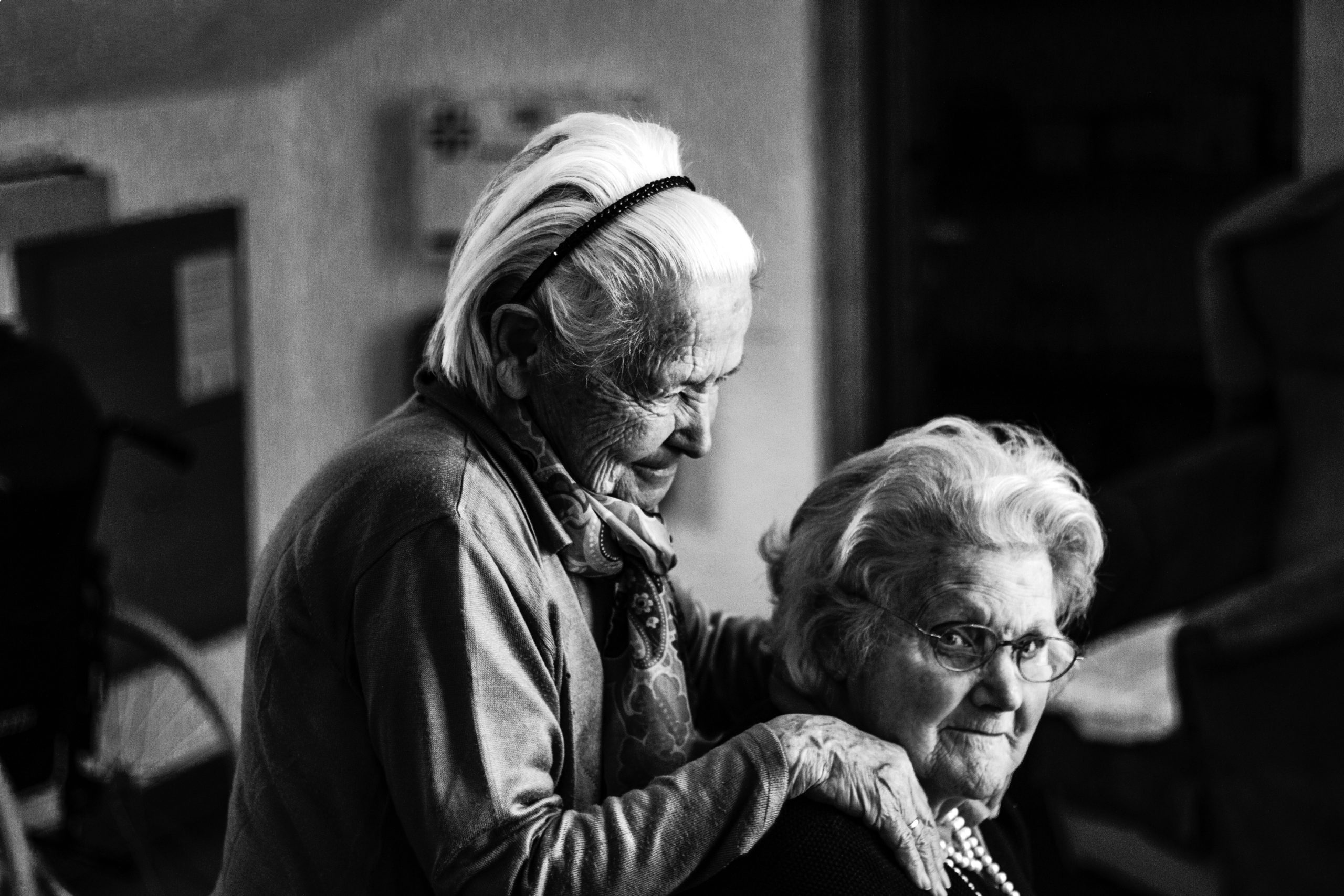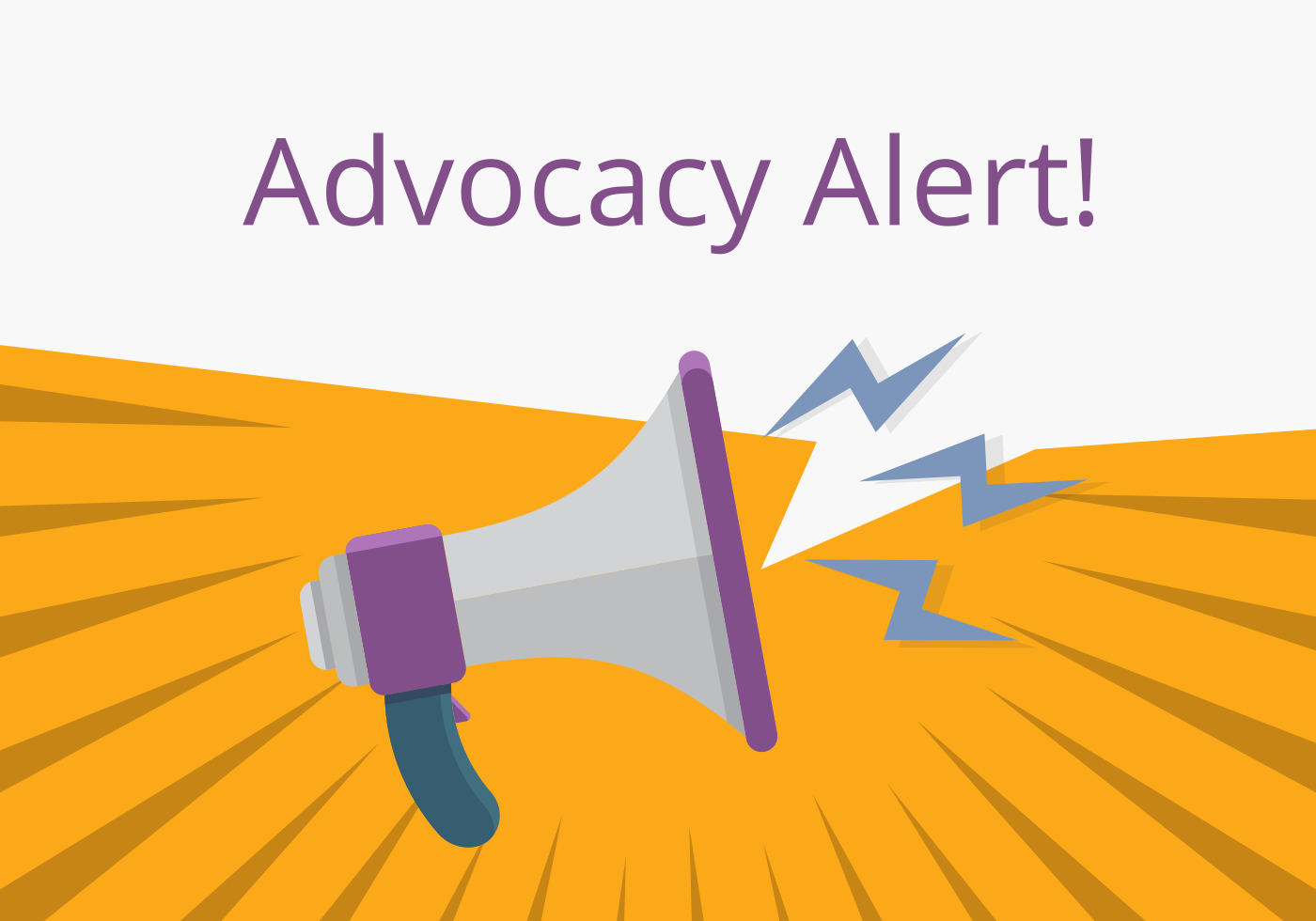Overview
Our advocacy efforts within the aging services network promote the need for greater LGBT cultural competence within aging services. We work with senior centers, politicians, Area Agencies on Aging (AAAs), and service providers to provide resources and education that will improve the services available to LGBT older adult populations.
All of these efforts are designed to strengthen LGBT older adult communities, empower seniors with information and resources, and improve the quality of services available to LGBT people as they age. Through this work, we strive to meet the unique needs facing our communities and to ensure that LGBT elders have every opportunity to age successfully at every age.
Policy Positions
DATA COLLECTION
Older LGBT individuals confront serious, additional barriers to successful aging that their non-LGBT counterparts do not. Unfortunately, the needs of LGBT elders frequently go unacknowledged because older LGBT individuals are largely invisible to the rest of society, despite their significant numbers. Improving data collection on LGBT older adults is critical to increasing their visibility and to addressing their unique needs. For example, better data collection would translate into information for policymakers to effectively allocate funding for aging programs and services and for providers to better understand and serve their older LGBT clients. To that end, policymakers at both the federal and state levels should include language in aging laws and policies requiring data collection about this vulnerable constituency. Additionally, service providers should incorporate questions about sexual orientation and gender identity into their daily practice, by integrating them into the demographics section of all forms and surveys, for instance.
INCLUSION IN AGING PLANNING
Though aging services and programs are available to all individuals ages 60 or older, LGBT older adults are less likely than their cohorts to engage them due to past and present discrimination and to a lack of outreach specific to them. At the same time, they are more likely to be socially isolated, have poor health and healthcare access, live in poverty, and lack traditional sources of support and caregiving, such as children, sibling, or other relatives. Specifically including LGBT elders in state and aging agency plans on aging would serve to ameliorate these disparities and help to ensure that LGBT older adults are receiving services for which they are eligible. It would also facilitate the identification and service of needs specific to LGBT older adults, improve data collection, and increase technical assistance and training to service providers.
IMPROVING CULTURAL COMPETENCE
“Cultural competence” is the ability of providers and organizations to effectively deliver services that meet the social, cultural, and linguistic needs of the clients they serve. Improving cultural competence is important for LGBTQ older adults because they confront serious disparities that hinder their ability to age successfully but are less likely than others to seek public assistance, available mainstream services, and healthcare due to fear of discrimination. If providers and organizations expanded their awareness of this population and their unique needs, and then adapted their services to this understanding, it would help LGBTQ elders feel more comfortable accessing necessary services. For example, providers should increase their understanding of the legacy of discrimination LGBTQ older adults have faced and work mindfully to build their client’s trust. This includes not making assumptions about their client’s sexual orientation and/or gender identity and being aware of misconceptions, bias, stereotypes, and other communication barriers. They should also let their client know that they are in a safe space by displaying pro-LGBTQ materials, such as signs, stickers, or handouts. On a larger level, the incorporation of these kinds of culturally competent practices can help to improve outcomes and quality of care, as well as, contribute to the elimination of disparities faced by LGBTQ older adults.
SUPPORTING THE PASSAGE OF LGBTQ INCLUSIVE NONDISCRIMINATION LAWS
Many, if not most, of the disparities LGBTQ older adults confront are the culmination of lifetime of discrimination, much of which was, and still is, sanctioned by law. For instance, many LGBTQ elders lived the majority of their working years when employment discrimination on the basis of sexual orientation and gender identity was legal and job opportunities for LGBTQ people were limited and unlikely to include health benefits and pensions. Though the legal landscape has changed significantly in the last decade, discrimination against LGBTQ people is still legal in many contexts. For instance, while the City of Philadelphia offers many protections to LGBTQ individuals, the Commonwealth of Pennsylvania does not. In fact, Pennsylvania is the only Northeastern state where it is legal to discriminate against LGBTQ people in areas of employment, public accommodations, and housing. Moreover, no state law protects LGBTQ Pennsylvanians from violence against them based on their actual or perceived sexual orientation and/or gender identity. This lack of protection not only leaves LGBTQ people vulnerable in a number of circumstances but also implicitly sanctions and reinforces negative views that fuel discrimination, misconceptions, and stigma. The adverse effects of actual discrimination, such as being fired or denied housing, are fairly obvious. Less obvious is the psychological toll of the cumulative effect of the stigma and the fear, felt most acutely, perhaps, by those who have endured it the longest, LGBTQ older adults. In light of all of this, and the fact that the population of older LGBTQ individuals continues to grow, it is imperative to support the passage of LGBTQ inclusive nondiscrimination laws at the local, state, and federal levels.
Contact Government
Keeping in touch with your legislators makes a difference!
In Philadelphia:
Find your City Council Member here.
Contact the Office of the Mayor here.
In Pennsylvania:
Find your State Senator and State Representative here.
Contact the Office of the Governor here.
In New Jersey:
Find your State Senator and State Assemblyman/Assemblywoman here.
Contact the Office of the Governor here.
In Delaware:
Find your State Senator and State Representative here.
Contact the Office of the Governor here.
Recent Advocacy Alerts
Advocacy Alert: Department of Health and Human Services continues attack on LGBT civil rights
The U.S. Department of Health and Human Services (HHS) has proposed a rule that would eliminate existing non-discrimination protections for LGBT individuals in all federal grants administered by HHS. The proposal would erase protections that had been enacted in the...
Advocacy Alert: House passes Dignity in Aging Act
The U.S. House of Representatives has passed the Dignity in Aging Act of 2019. The bill would reauthorize the Older Americans Act (OAA) through 2024. The OAA directly funds many of the services delivered by the county-level Area Agencies on Aging that help older...
Advocacy Alert: Legislation targets illegal gambling, seeks to protect Lottery Fund for older Pennsylvanians
In 1971, Act 91 established the Pennsylvania State Lottery with the main purpose of funding programs and services for older Pennsylvanians. State law requires that at least 25% of gross lottery sales are dedicated to programs benefiting seniors. This funding includes...
Advocacy Alert! HUD proposal would weaken discrimination protections under the Fair Housing Act
The Department of Housing and Urban Development (HUD) has proposed a new rule change that would make it more difficult for individuals who have experienced housing discrimination to seek legal action. The proposed rule change targets the “disparate impact standard,”...
Advocacy Alert: Tell Congress to Reauthorize the Older Americans Act
This September, the Older Americans Act (OAA) is up for renewal in the U.S. Congress. This landmark legislation, signed into law in 1965 by President Johnson, maintains a framework and allocates funding to create and improve programs to serve older Americans at...
Advocacy Alert: Trans Rights Under Attack in Proposed Rule Change to Section 1557 of the Affordable Care Act
The Trump administration is attempting to roll back protections for transgender and gender non-conforming individuals who were previously protected from discrimination under the Affordable Care Act (ACA). On June 14th, the US Department of Health and Human Services...
Advocacy Alert! Help the Equality Act pass the U.S. Senate
With the historic passing of the Equality Act in the House of Representatives this May, the landmark legislation banning discrimination against LGBTQ Americans goes on to the United States Senate. The bill would amend the Civil Rights Act of 1964 to include sexual...
New federal legislation seeks to advance rights of LGBT elders
Two new pieces of legislation were proposed this month that would improve the services available to LGBT older adults nationwide. This legislation would create new offices within the federal government that would be dedicated to LGBT health and policy, increase...
Advocacy Alert: Join SAGE in urging elected officials to strengthen federal protections for LGBT elders
This March, SAGE held it's first-ever National Day of Advocacy, bringing LGBT elders, people living with HIV, and allies together in Washington D.C. to share their stories face-to-face with their elected representatives. Participants advocated with lawmakers to...
Advocacy Alert! “Equal Dignity for Married Taxpayers Act” seeks to affirm LGBTQ community
Tax season is upon us! For married same-sex couples, the federal recognition of their unions means that they can file jointly just as any married heterosexual couple would. While same-sex marriage has been the law of the land since 2015, the U.S. tax code - as...


